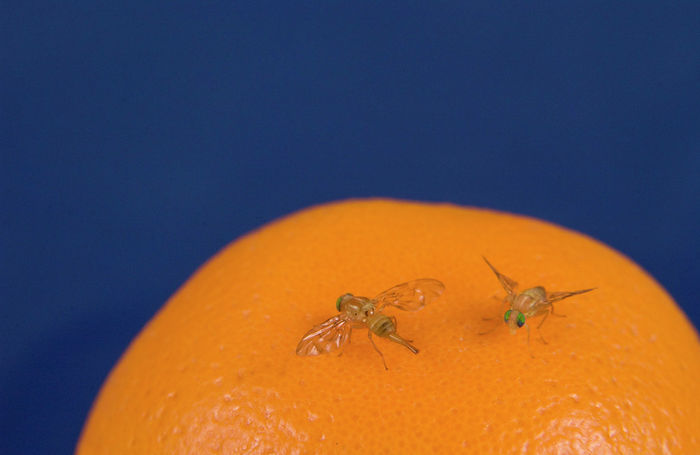Time travel and genius AI: Research roundup
Daniel Hilton and Grace Wakeman give you the run down on recent research to help you impress your STEM-smart friends

Cambridge eggheads discover new drug that could stop gout
College dons and masters can finally wash down their swan and beef dinners with copious amounts of port without fear of gout as scientists discover new drug.
Boffins based at Cambridge’s Heart and Lung Research Institute have found that a cancer drug in the final stages of development could help reduce inflammatory diseases like gout and heart failure.
“College dons and masters can finally wash down their swan and beef dinners with copious amounts of port without fear of gout”
The Cantabrigian brainiacs have identified a molecule that triggers inflammation in response to harmful materials coming into the body. This molecule though occasionally gets it wrong and accidentally attacks natural bodily functions – this is how we get gout.
Red-meat-lovers shouldn’t fear though, as science whizzes have discovered that the PLK1 molecule, which helps organise cells’ internal transport networks, can be inhibited with a new drug, stopping runaway inflammation.
The miracle medication was initially developed to help the body fight against cancer, but research has indicated that in much lower doses the treatment helps stop inflammation.
The drug has been proved to work mice-ly on rodents with inflammatory diseases, helping prevent an over-the-top response.
Researchers have already got the drug’s cancer variant in clinical trials – the last stage of development – and have plans to test it out on gout-sufferers in the future.
While the jury is still gout on whether the treatment will work or not, Oxbridge dons all over the country can rest easy knowing that the likelihood that their swan-gorging and port-gulping will have lasting damage is ever-so-slightly lower.
Genius AI robots can spot hard to decarbonise houses, say boffins
Boffins from Cambridge’s Department of Architecture have trained a cutting-edge AI model to help find polluting houses in Cambridge.
Researchers have said that “hard-to-decarbonise” houses are directly responsible for more than a quarter of all pollution from abodes but have been often difficult to identify.
The researchers say that the new mastermind robot is fed energy performance data as well as pictures from Google’s Street View and temperature readings. It then uses “deep learning” to analyse the data and identify if the house is hard to decarbonise.
These environmentally hazardous houses have previously been difficult for policymakers to discover but, with help from AI, they are able to be directed to high priority houses, saving time and resources.
Researchers have so far only trained the AI model on data from Cambridge and the surrounding area but have already discovered important information on which houses are green and which houses are hard to decarbonise.
“These environmentally hazardous houses have previously been difficult for policymakers”
Dr Ronita Bardhan, a lead researcher from Selwyn, says that the boffins will soon discuss what they’ve found with Cambridge City Council and will keep on working with other eggheads at Cambridge Zero to find new ways to beat climate change.
Back to the future? Using backwards time travel to improve scientific experiments
Physicists have simulated models of hypothetical time travel by manipulating entanglement, a component of quantum theory that causes particles to be intrinsically connected to each other. They demonstrated that it is possible in some cases to retroactively change actions, potentially improving experimental outcomes in the present.
Entanglement states that if two particles are in close enough proximity to interact, they remain connected even when separated over large distances and this is a fundamental concept already used in quantum computing. The simulation faces a 75% chance of failure each time it is run, yet could have significant implications for a better understanding of quantum mechanics and future quantum technologies.
But it might not be time to dust off the DeLorean just yet: “We are not proposing a time travel machine, but rather a deep dive into the fundamentals of quantum mechanics. These simulations do not allow you to go back and alter your past, but they do allow you to create a better tomorrow by fixing yesterday’s problems today,” said lead author David Arvidsson-Shukur from the Hitachi Cambridge Laboratory.
Gaia mission: The gift that keeps on giving (lots of data)
The most recent data release from The European Space Agency’s Gaia mission has greatly surpassed expectations by releasing a wealth of new data that provides detailed insights into our galaxy and the cosmos beyond.
While the Gaia space observatory wasn’t initially designed for cosmology when it was launched in 2013, it has proved invaluable in this field through its detection of gravitational lensing phenomena and uncovering of important information about globular clusters and quasars. The data has revealed over half a million new and faint stars in a massive cluster, identified over 380 potential cosmic lenses and pinpointed the positions of more than 150,000 asteroids within our solar system.
This is just a hint at potential rich data to come in the next release at the end of 2025 (Gaia DR4) that aims to refine our knowledge of stars’ colours, positions and movements and characterise quasars, galaxies, exoplanets and much more.
 Comment / Cambridge’s tourism risks commodifying students18 April 2025
Comment / Cambridge’s tourism risks commodifying students18 April 2025 News / Cambridge student numbers fall amid nationwide decline14 April 2025
News / Cambridge student numbers fall amid nationwide decline14 April 2025 News / Greenwich House occupiers miss deadline to respond to University legal action15 April 2025
News / Greenwich House occupiers miss deadline to respond to University legal action15 April 2025 Comment / The Cambridge workload prioritises quantity over quality 16 April 2025
Comment / The Cambridge workload prioritises quantity over quality 16 April 2025 News / Varsity ChatGPT survey17 April 2025
News / Varsity ChatGPT survey17 April 2025






